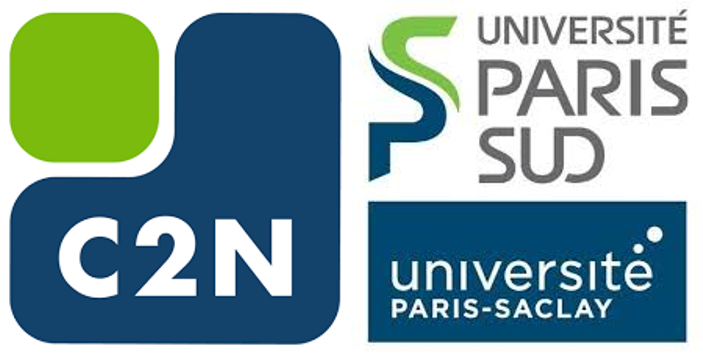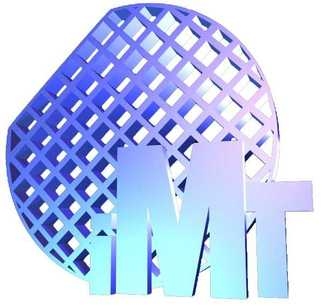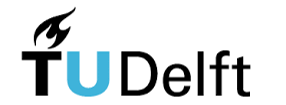Partner contacts
 |
|
|
This email address is being protected from spambots. You need JavaScript enabled to view it. received a M.Sc. degree in Physics from Alexandru Ioan Cuza University, Romania in 2005, after which he started as an assistant professor in the field of magnetism within the Physics department. In 2007, he joined the Physics Department at Technische Universität Kaiserslautern and he obtained a PhD degree in Physics in 2012 from at the same university. Subsequently, he was a postdoctoral research fellow at KU Leuven and in 2016 started as a senior scientist at IMEC. Currently he is Principal Member of Technical Staff in the Compute and Memory Devices Department where he works on the development of logic, radio-frequency, and sensor devices based on magnetic spin-related phenomena. He was the beneficiary of an EU Marie Curie Fellowship and also involved in the management of the European research grants. He has co-authored over 40 scientific papers, two granted patents and two pending patent applications. He serves as Associate Editor for IEEE Transactions on Nanotechnology.
|
|
 |
This email address is being protected from spambots. You need JavaScript enabled to view it. (assistant professor, WP2 leader) is working on functional oxide thin films and microsystems. After completing her studies at the École Supérieure de Physique et de Chimie Industrielles (Paris), she obtained her PhD in materials science in 2011 from the University Paris-VI (CEA PhD grant) and was a postdoc for 2 years at the University of Groningen (Netherlands). She joined UPSud in September 2013, and studies piezoelectric epitaxial oxide thin films and nanostructures in order to develop novel oxide-based electronic devices. Her research work has been mainly focused on the epitaxial growth of oxide thin films and on the tuning of their magnetic, ferroelectric, and piezoelectric properties by strain engineering and nanostructuring, using a wide range of characterisation techniques, especially with synchrotron radiation. She has co-authored 18 papers in international journals. |
|
This email address is being protected from spambots. You need JavaScript enabled to view it. (CNRS research director) heads a research team in charge of the microwave magnetisation dynamics in nanomagnets and its applications. He has 20 years of research experience in magnetic nanopatterning, material science, microwave magnetism, instrumentation and device design. After completing his studies at the École Polytechnique, he obtained his PhD in 2000 from the University Paris-XI (Orsay) and then entered CNRS to conduct a project to study the physical phenomena relevant for the operation speed of magnetic random access memories. He was awarded his Habilitation in 2006 and then started his own group. He has co-authored 145 papers (h-index = 44, google scholar with over 7000 citations) and filed 6 patents with industrial partners.
|
|
 |
|
|
This email address is being protected from spambots. You need JavaScript enabled to view it. (full professor) is a Professor of Experimental Physics, particularly magnetism, in the Department of Physics at the University of Kaiserslautern. His research focuses is on the dynamics of magnetic processes as well as new magnetic materials and their applications. He is Vice president of the European Magnetism Association (EMA) and the Academy of Sciences and Literature, Mainz, as well as a Fellow of the IEEE, the American Physical Society, and the Institute of Physics, London. He has more than 25 years of experience in magnetisation dynamic analysis, in particular in Brillouin light scattering spectroscopy and is an expert in the field of dynamic analysis, magnon physics and their applications. He has more than 400 peer reviewed publications (h-index = 84), published 22 books and book chapters, and holds 5 patents. He has also experience as coordinator or member of 9 EU-funded research networks. His ERC Advanced Grant “Supercurrents of Magnon Condensates for a Novel Magnon Spintronics” has been started in October 2016.
|
|
|
This email address is being protected from spambots. You need JavaScript enabled to view it. obtained his M.Sc. in applied physics at the University of Twente in 2015. During his education Thomas started working for Solmates in 2012 being a system operator. Ever since Thomas has executed several different roles within the company, always closely involved in process development in the field of piezoelectric thin films and transparent oxides. Thomas has experience with managing several European and national projects. |
|
|
This email address is being protected from spambots. You need JavaScript enabled to view it. (CTO of Solmates, WP1 leader) obtained a PhD degree in 2007 on transparent oxides de-posited by Pulsed Laser Deposition. He is the author of many articles in which Pulsed Laser Deposition plays an important role. He is a co-founder of Solmates. He has developed research processes towards production processes in the field of piezoelectric thin films and transparent oxides deposited by PLD. Matthijn has been able to steer his team towards effective process development in cooperation with customers and universities. He has extensive expertise in pulsed laser deposition and is able to balance budget, team, and deadlines.
|
|
 |
|
 |
|
 |
This email address is being protected from spambots. You need JavaScript enabled to view it. received his PhD degree in Solid State Electronics from the Department of Electrical & Electronic Engineering of the University of Salford, UK in 1987. Since 1988, he has been working at MRG/ FORTH as a researcher, where he currently holds the title of Research Director. Since 1991, he is heading the processing research activities of the group and has extensive experience in the processing of wide band gap semi-conductors and carbon based materials. Since 1997, he has established an open services laboratory and since 2000 is the ISO 9001 quality system manager. Since 2003, he is also the facility manager of MRG. He has participated in numerous European projects and he has acted as the PI of MRG in seven (FP7, ENIAC) international projects. He has attracted funding exceeding 3 M€. He was the project manager in the INCO-Copernicus MEMSWAVE project in which novel non-silicon RF MEMS components and circuits were fabricated at FORTH and which was among the runners-up of the 2002 Descartes Prize. In 2003 he received the prize "Tudor Tanasescu" of the Romanian Academy of Sciences for his work on RF MEMS. In 2005, he was a key member of the EXEL team that was among the winners of the 2005 Descartes Prize. In 2003, he was elected to the Board of Directors of the European Microwave Association (EuMA) while in 2004 and 2007 he was elected as Vice President of the Greek Micro and Nano Society. He has 125 publications in refereed journals & numerous conference presentations, 5 book chapters, and holds 1 patent. He is an elected member of the Scientific Board of IESL-FORTH. He is also the PI of bilateral Russia-Greece 'EINSTEIN' project on development of experimental and theoretical studies on physical properties of low dimensional quantum nanoelectronic systems.
|
|
|
|
 |
|
|
This email address is being protected from spambots. You need JavaScript enabled to view it. is an Associate Professor with the Electrical Engineering, Mathematics and Computer Science Faculty at TU Delft. His current research is focused on unconventional computation paradigms and computation with emerging nano-devices and reliability. He (co-) authored more than 300 conference and journal papers, and received 12 international conferences best paper awards. He served as Associate Editor for many journals and he is currently Associate Editor in Chief and Senior Editor for IEEE Transactions on Nanotechnology and Steering Committee member for IEEE Transactions on Multi-Scale Computing Systems. |
| Top | |

